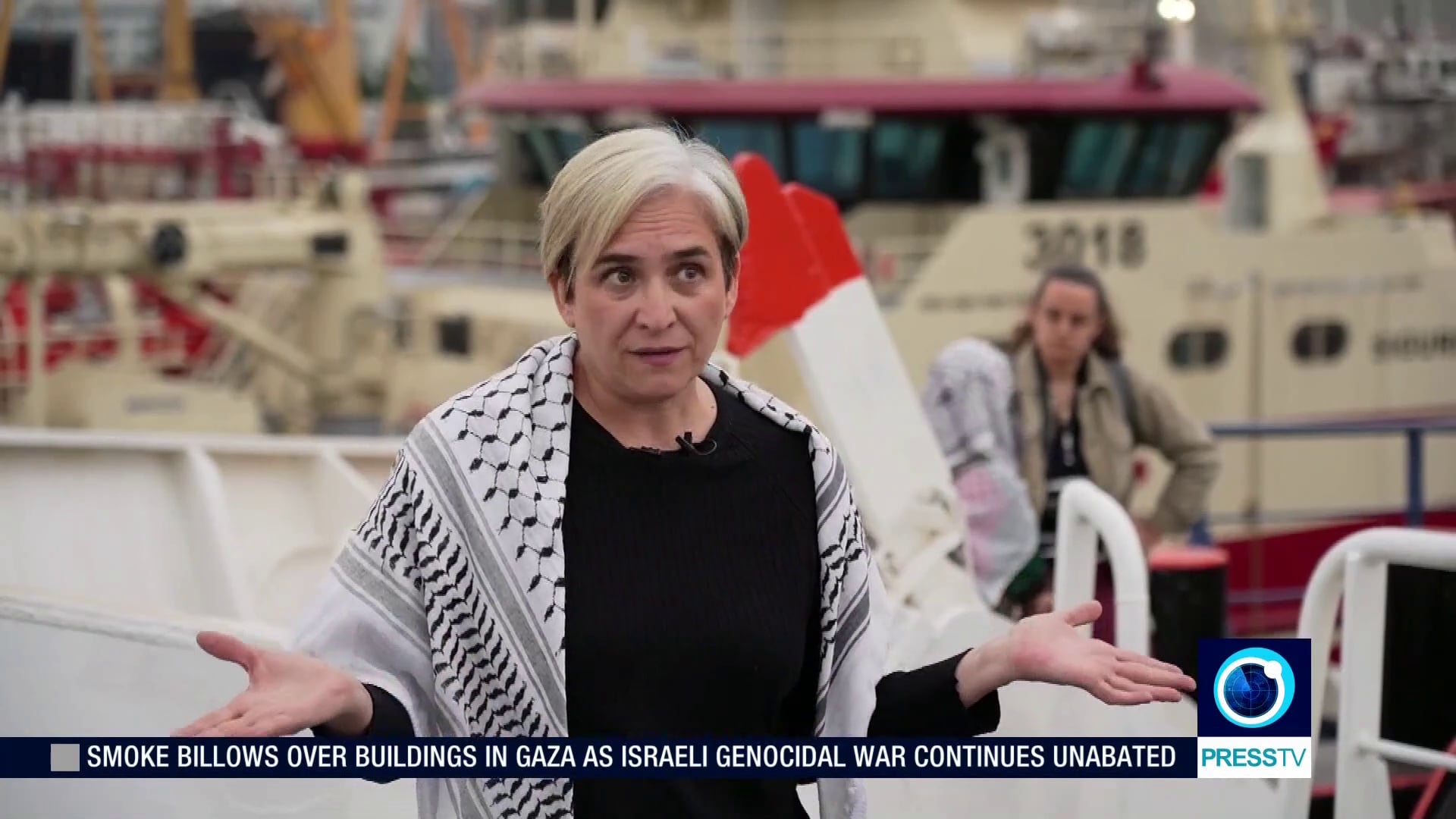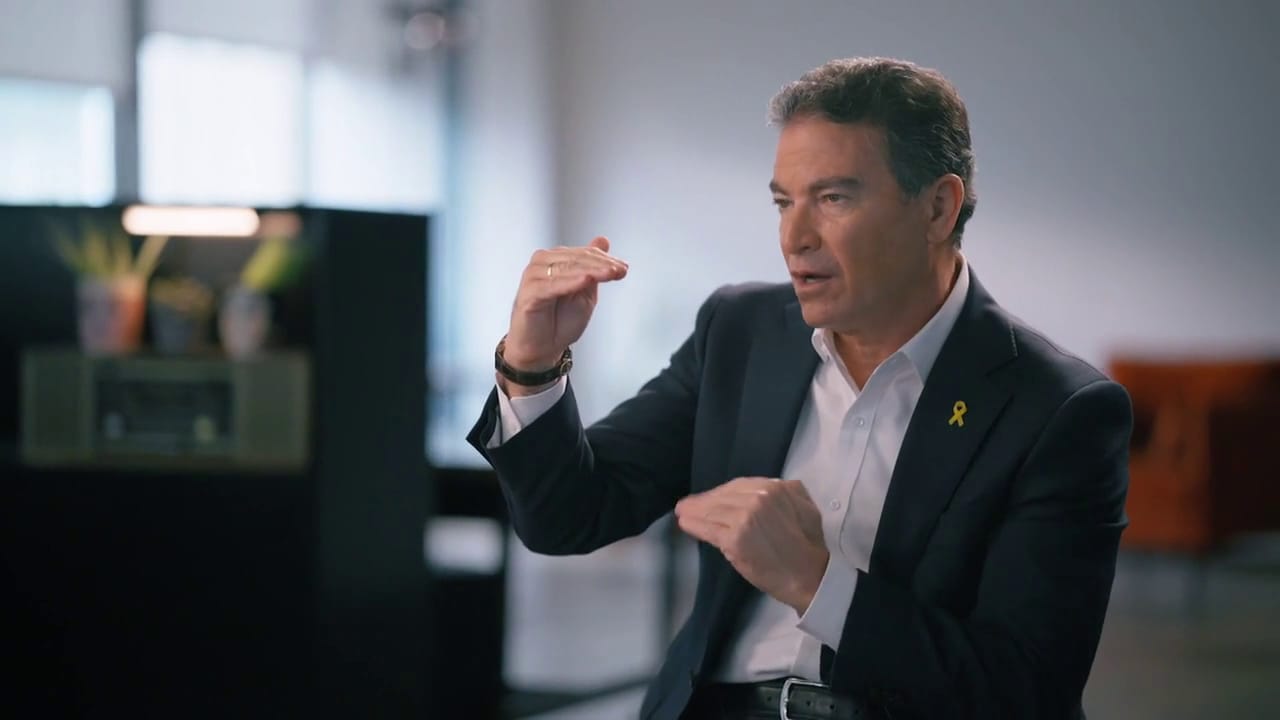
Head of Iran's Atomic Energy Organization Mohammad Eslami discussed in a January 13, 2024, show on Ofogh TV (Iran) his county's plans for obtaining nuclear weapons. He said that Supreme Leader Ayatollah Ali Khamenei has issued a fatwa forbidding the use of nuclear weapons, and therefore such weapons are not part of Iran's "national strategy." However, in response to a question whether Iran would reconsider this policy in the future, he said that Iranians don't lack the capability to produce such weapons. Eslami said that Iran should not "underrate" its current achievements, and he added: "This deterrence has been achieved with the help of God."
Interviewer: "Now that we are certain that the Zionist regime is armed with nuclear weapons, and its prime minister directly threatened the Islamic Republic, is it not time for Iran to also have nuclear weapons? Or at the very least, conduct a nuclear test?"
Mohammad Eslami: "The Islamic Republic of Iran has an active deterrence strategy. Having WMDs has never been part of the security and defensive doctrine of the Islamic Republic of Iran. Never... Especially since our esteemed leader [Khamenei] issued a fatwa which forbids the use of nuclear weapons, this has not been part of our national strategy."
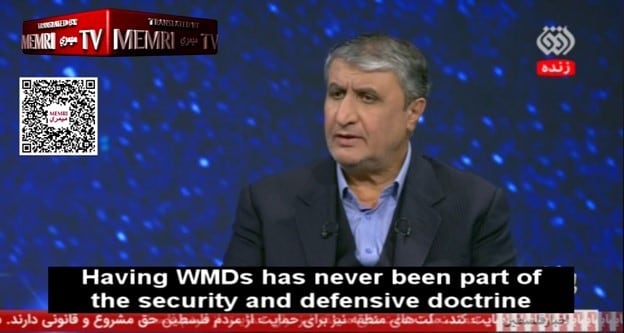
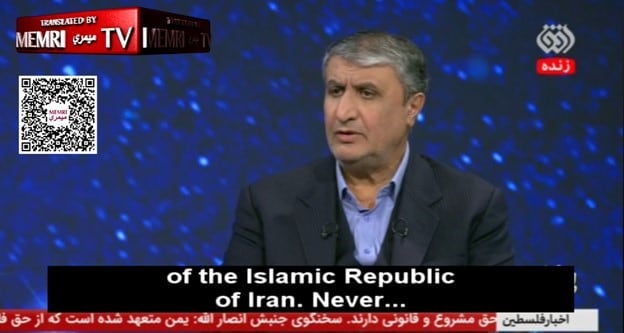
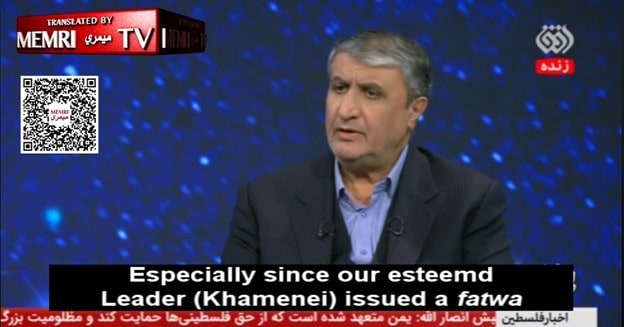
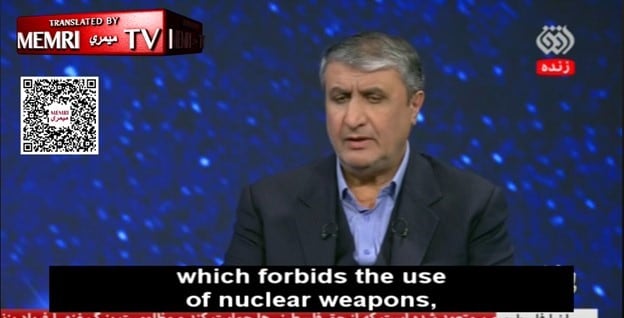
[...]
Interviewer: "Both India and Pakistan are armed with nuclear weapons. In essence, the balance of power between them is maintained, and in case of any border clashes, this prevents an all-out war. There are threats now, the Zionist regime is committing certain acts, and the U.S. makes trouble. So my question is whether we should not do this as well, for the sake of balance of power. Is it not possible to reconsider this issue, if one day the people demand it?"
Mohammad Eslami: "This is not about [us] not having the capability. Rather, it is about us not wanting to do this. In terms of our national security, we do not want to do it. It is not about the lack of capability. This is a very important point. Our national security in this field requires us to continue to seek our objectives and to gain influence. I think we have achieved such deterrence. In other words, we should not underrate our current achievements, thinking that we are not there yet. This deterrence has been achieved with the help of God, without having to violate any rules and regulations."











